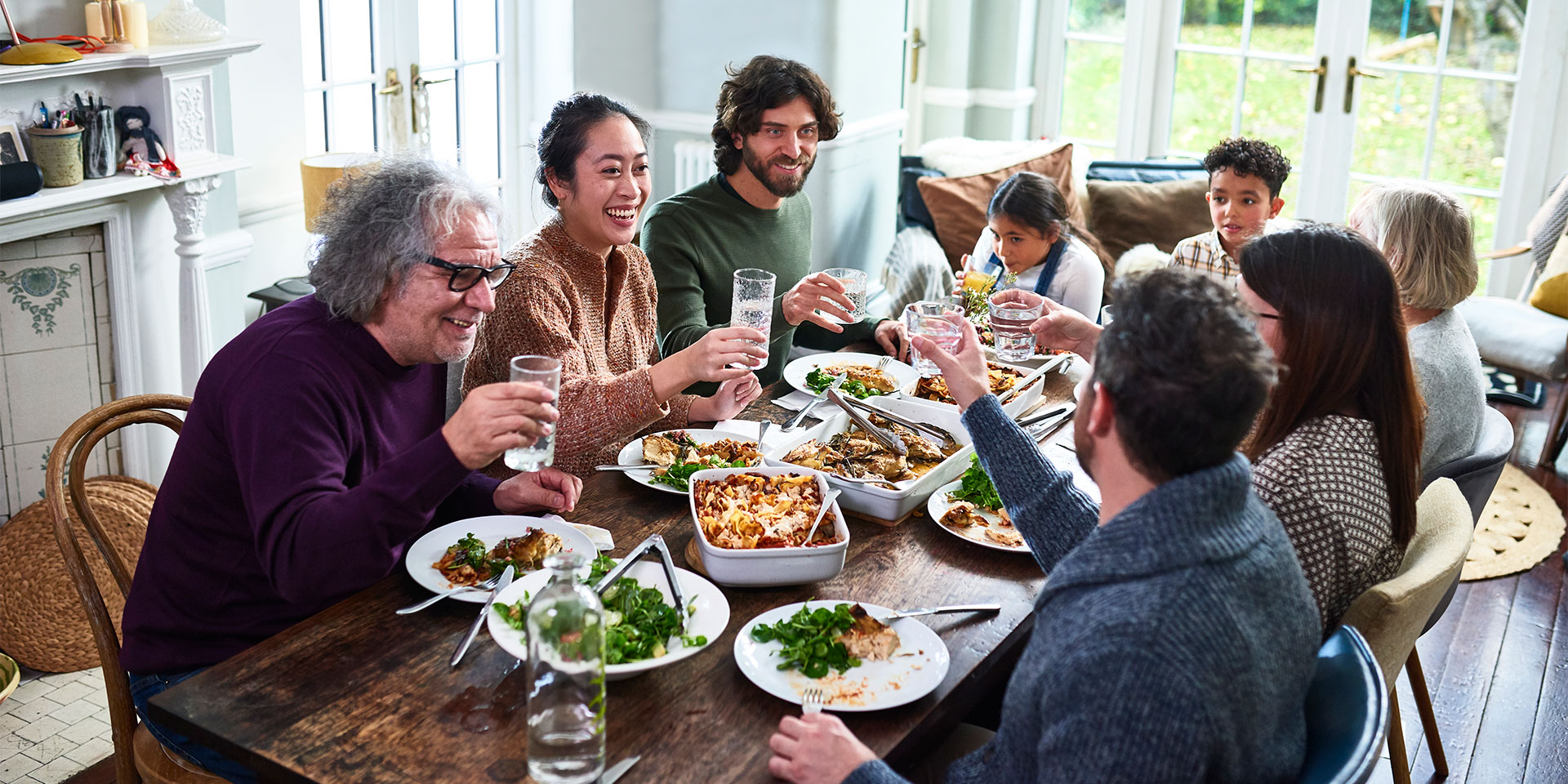I once invited the cashier at my local 7-Eleven petrol station to join me and my friends on a beach couch made of sand to eat hotdogs after his shift. To our surprise, he not only came but continued to join us for months after.
On the night of his last shift before he moved across the country, my friends and I stood by his counter and shared a meal of frozen slushies. With tears in his eyes, he thanked us for making him feel like family. He said that we were the best thing that had happened to him since he moved to Australia. All we did was occasionally invite him to eat with us and stop to say hello when we got petrol—but the impact that had on him was profound.
It’s not every day I ask cashiers over for dinner. However, after this occasion, it’s something I wish we all did more often. The ache of loneliness in this world is real, and many of us experienced heightened levels of it after spending months in isolation due to Covid-19. But it’s not just the lockdowns that have made us feel lonely. We live in a world with fences and locked doors.
We make dinner for ourselves to suit our unique dietary requirements and never trouble our neighbours for anything. We may feel comfortable and safe, but many of us also feel isolated and alone. Though we’re connected on our phones, we miss face-to-face connection.
If we go back in time—before anyone had ever heard of such a thing as a “loneliness epidemic”— we see people consistently coming together to eat. We see people gathered around fires, sprawled out on rugs, seated at tables. We see feasts around weddings and wakes, birthday parties and religious festivals.
We see armies eating on the other side of their rivals and alfresco paintings in churches and museums of Jesus breaking bread with His followers. What is it about food that brings people together and has done so for thousands of years? How do things like pizza and cake help us keep a hold on relationships that, if we’re honest, might not exist without them?
The table, surprisingly, transformed the Roman Empire. In his book Surprise the World, author Michael Frost explains that while biblical characters such as the apostles Peter or Paul were out sharing the good news of Jesus, thousands of ordinary believers were confusing fourth-century emperor Julian with their so-called “love feasts”.
The early Christians did so much of their ministry around the table that Julian’s biggest concern was that these people had become radical socialisers and would take over his empire with hospitality. During the brutality of life under Roman rule, the people realised that the table was an incubator where they could invite outsiders, feed the poor and meet with those of so-called lower ranking.
In Luke’s biography of Jesus’ life, he says, “The Son of Man came eating and drinking” (Luke 7:34). Not wearing a cape, riding around on a white horse or with an army of angels. The Son of Man came eating and drinking—plain and simple. In the Gospel of Luke alone, there are 10 other stories of Jesus dining with people, from crooks to kings to frauds and friendly fishermen.
Jesus regularly invited Himself over to other people’s homes for meals. He ate outside with thousands of people, even though He had nothing to offer them until a young boy showed up with a little bit of bread and a few fish (Matthew 14:13–21). He had difficult conversations over dinner, and broke bread with the disciples right before He was crucified, as well as right after He rose (Matthew 26:17–30, Luke 24:40–43). He did all of this because He cared about spending time with people, and He knew that coming together to eat makes us human in a way very few things have the power to do.
Eating together is more than just a sacred practice. It also benefits our physical bodies. When we pass food around the table, make eye contact as we sit across from one another, pause to listen to what someone is saying as we chew—we lower our risk of cardiovascular disease and our bodies get an endorphin buzz. Endorphins are a part of our brain’s pain management system and they benefit our mind-body connection by giving us an opiate high.
Author Dan Buettner and the National Geographic team travelled the world to find where people live the longest. They identified the top five places as “Blue Zones”. One of the commonalities was that, as a rule, nobody eats alone. One zone specifically—the Ikarians in Greece—are known to eat slowly while holding a conversation, which helps them build stronger ties and digest their food better.
It is not just our tight schedules that are hindering us from eating with others. Our individualised diets have also gotten in the way. But what if I told you that the benefits of eating in company outweigh the negatives of what you eat? According to a study published in The Journal of Pediatrics, families that prioritise eating together rank lower in obesity and health problems.
Those who eat with others are far more likely to feel better about themselves and be satisfied with their lives. The Greek philosopher Epicurus—who once bought a house for his friends to eat at—recommended that no one ever eat by themselves. He said, “Before you eat or drink anything, consider carefully who you eat or drink with rather than what you eat or drink.”
The dining table is so routine that it is easily overlooked as a place where we can change lives. Eating together makes us human in a way very few things have the power to do, and sharing a meal provides the context for which people feel loved, seen and heard. The good news once spread from one table to another. If each of us were in the habit of inviting someone to share a meal with us every now and then, perhaps we would, as the early Christians did, change the world by eating.
Theologian and professional chef Simon Carey Holt says, “It is through the daily practice of the table that we live a life worth living. At the table we learn what it means to be a family and how to live in responsible, loving relationships. Through the table we live our neighbourliness and citizenship, express our allegiance to particular places and communities, and claim our sense of home and belonging. At the table we celebrate beauty and express solidarity with those who are broken and hungry.”
The idea of putting on a banquet can no doubt be overwhelming. But it doesn’t have to be complicated. Most of us already eat three meals a day, so the time we need to share our thoughts, experiences and emotions slots right in with the time we need to nourish our bodies.
Maybe for you, it looks like eating lunch with someone on your work break instead of scrolling on your phone. Maybe it looks like inviting your neighbours over for breakfast on Sunday morning or sharing dip and crackers in the park with a friend. Remember, it’s not so much the food but the company that counts.
Zanita Fletcher is an assistant editor for Signs of the Times Australia/New Zealand magazine, as well as a life coach and story scout. She lives on the Gold Coast, Australia. A version of this article first appeared on the Signs of the Times Australia/New Zealand website and is republished with permission.




















